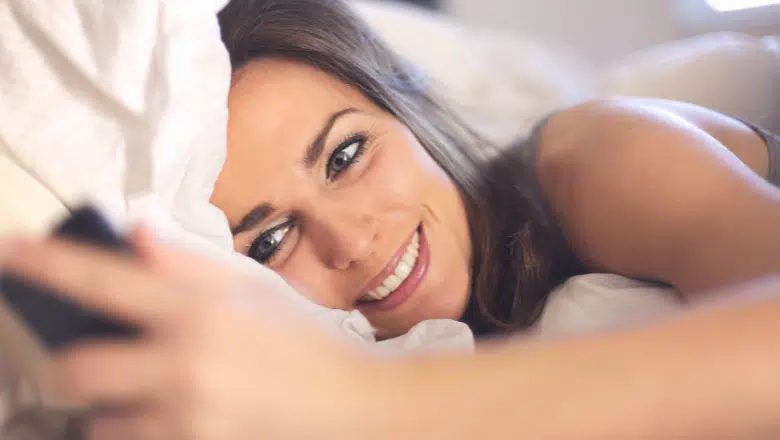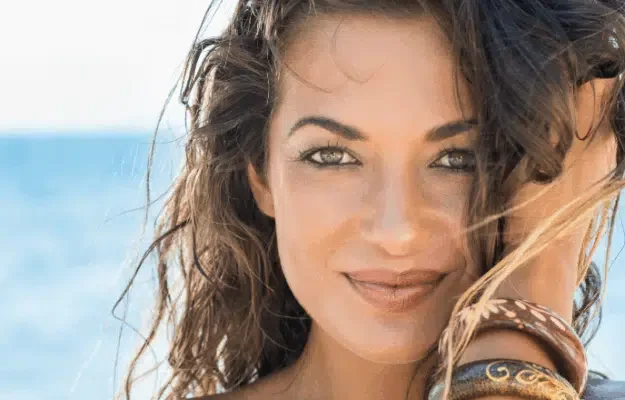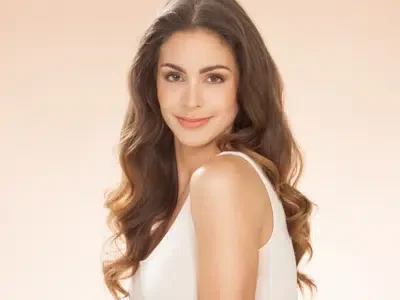Vaginoplasty & Vaginal Tightening Surgery: London & UK
Rediscover your confidence and rejuvenate your intimate life with our skillfully performed vaginoplasty, designed to restore your natural contours and enhance your sense of self.
Vaginoplasty, also known as vaginal tightening, is a cosmetic gynaecology procedure for reconstruction of the pelvic floor in women who have been affected by significant laxity or looseness of the vaginal walls and underlying musculature, most commonly as a result of childbirth but also with the natural ageing process.
RELATED: Regain Your Confidence With Vaginoplasty
Vaginoplasty surgery is sometimes also known as vaginal rejuvenation and is designed to tighten and strengthen the vaginal walls and tissues. The procedure is performed to reshape and tighten the tissue walls inside the vagina, helping women achieve a youthful appearance to boost self-esteem as well as improve their sexual satisfaction through the improvement of function.
RELATED: Vaginal Tightening for Loose Vagina and Vaginal Laxity
Vaginoplasty and pelvic floor repair are often carried out for the treatment of pelvic floor prolapse, which occurs when one or more of the organs from the pelvis, such as the rectum or bladder, descend as a result of tissue laxity, causing the formation of a rectocele or cystocele, respectively. Pelvic floor prolapse can sometimes be improved with certain pelvic exercises. However, in most cases, the prolapse eventually causes physical pain and discomfort. If this happens to you, you may wish to undergo treatment for pelvic organ prolapse.
What is Vaginoplasty?
Vaginal tightening surgery, medically referred to as vaginoplasty, is a surgical procedure designed to tighten the vaginal canal. This procedure is often sought by women who experience a loosening of the vaginal muscles and tissues, a common occurrence following childbirth or due to natural ageing.
RELATED: What Is A Designer Vagina?
During childbirth, significant vaginal stretching occurs, and the structure of the vagina, in many cases, does not return to its original size before pregnancy. The pelvic floor muscles, also known as the levator muscles, are flat, shelf-like muscles found on either side of the female pelvis and become stretched when the baby’s head passes through the vaginal base, also known as ‘crowning’. The soft tissues found in the vagina can also become significantly overstretched in those with congenital hypermobility syndrome. Most women commonly report reduced sensitivity in the vaginal area, which leads to many women feeling unsatisfied after sexual intercourse. Vaginoplasty can also be combined with labia reduction surgery in women who have excessively large labia.
RELATED: Labiaplasty & Vaginoplasty – What Procedure is Right for You?
The primary goal of the procedure is to restore the muscles and tissues of the vaginal canal to a tighter “pre-childbirth” state. This can help to enhance sexual satisfaction, reduce discomfort from lax vaginal tissues, and improve overall confidence and well-being.
The procedure involves the removal of excess vaginal lining (vaginal mucosa) and the tightening of the surrounding soft tissues and muscles. Depending on the individual’s needs, the procedure may also involve the repair of the perineum, an area that often experiences damage during childbirth.
RELATED: Vaginal Tightening Options – Ways to Tighten Your Vagina
Laser vaginal tightening treatment may also be used for women who have mild symptoms using IntimaLase, and is a commonly carried out treatment for vaginal laxity, and perfectly complements a vaginoplasty procedure for optimal relief of symptoms and improvement of vaginal appearance.
Benefits of Vaginal Tightening Surgery
Vaginal tightening surgery, also known as vaginoplasty, is a cosmetic procedure that is designed to tighten and rejuvenate the vaginal area. There are several benefits of this procedure, including:
Improved Sexual Function
After giving birth or as a result of ageing, the vaginal walls may stretch and lose their tone, leading to reduced sexual pleasure. Vaginal tightening surgery can help restore muscle tone and improve sexual function.
Increased Confidence
Women with stretched or loose vaginal muscles often experience low self-esteem and reduced confidence. Vaginal tightening surgery can improve the appearance of the vaginal area and help women feel more confident and comfortable in their own skin.
Reduced Incontinence
Vaginal tightening surgery can help strengthen the muscles that control urine flow, which can reduce the symptoms of urinary incontinence.
Reduced Discomfort
Women with enlarged or sagging vaginal muscles may experience discomfort or pain during physical activities such as exercise, sexual intercourse, or even just sitting. Vaginal tightening surgery can relieve these symptoms and improve overall comfort.
Improved Aesthetic Appearance
Vaginal tightening surgery can improve the appearance of the vaginal area by reducing the size of the labia and removing any excess skin or tissue.
RELATED: 3 Common Reasons to Consider Vaginoplasty
It’s important to keep in mind that vaginal tightening surgery is a major procedure and should not be taken lightly. As with any surgical procedure, there are potential risks and complications, including infection, bleeding, and changes in sensation.
If you are considering vaginal tightening surgery, discuss your goals and expectations with a specialist surgeon at Centre for Surgery, who specialises in cosmetic gynaecology surgery. Our surgeons can provide more detailed information about the procedure and the results and help you make an informed decision about whether vaginal tightening surgery is right for you.
Ideal Candidates for Vaginoplasty Surgery
The best candidates for vaginal tightening, or vaginoplasty, are typically women who have experienced a loosening of the vaginal muscles due to childbirth or ageing. However, being a suitable candidate for this procedure involves more than just physical factors. Here are the key considerations:
Physical changes
If you’ve noticed changes in your vaginal tightness, particularly after childbirth or due to ageing, and it’s causing you physical discomfort or affecting your sexual satisfaction, you might be a good candidate for vaginoplasty.
Emotional wellbeing
Many women who seek vaginoplasty do so not just for physical reasons but also because the changes they’ve experienced have affected their self-esteem and emotional well-being. If this is the case for you, vaginal tightening surgery might be beneficial.
Good health
As with any surgical procedure, maintaining good overall health is crucial. You should be free from any severe underlying medical conditions and not be pregnant. If you’re a smoker, you’ll be asked to quit for a certain period before and after the surgery, as smoking can hinder healing.
Realistic expectations
While vaginal tightening surgery can significantly improve the tightness of your vaginal muscles, it’s essential to have realistic expectations about the procedure. A skilled surgeon can provide you with a good idea of what to expect, but perfection is not a guarantee.
Not planning future pregnancies
If you’re considering vaginoplasty but are also planning to have more children, you may be advised to delay the surgery. Future pregnancies can negate the effects of the surgery, as vaginal muscles and tissues may again become stretched during childbirth.
Completed family
Vaginoplasty is typically recommended for women who have completed their family. Pregnancy and childbirth after the procedure could compromise the results.
RELATED: Should You Wait Until You Are Done Having Children to Get a Vaginoplasty?
How to Prepare for Vaginoplasty
Choose a Qualified Vaginoplasty Surgeon
Select a surgeon who specialises in genital surgery and has experience performing vaginoplasty. Ask for before-and-after photos of previous patients to get an idea of the surgeon’s skills and outcomes.
Stop Smoking
Smoking can impede the healing process and increase the risk of complications, so it’s important to quit smoking before the procedure.
Avoid Certain Medications
Certain medications, such as aspirin, ibuprofen, and other blood-thinning agents, can increase the risk of bleeding, so it’s important to avoid these medications before the procedure.
Limit Sexual Activity
It’s best to avoid sexual activity for at least two weeks before the procedure to reduce the risk of infection.
Arrange for Aftercare
Make arrangements for someone to care for you after the procedure, as you may need help with activities such as bathing, dressing, and running errands.
RELATED: Vaginoplasty Safety Guidelines: What You Need to Know
Follow Preoperative Instructions
Your surgeon will provide you with specific instructions on how to prepare for the procedure, including details on when to stop eating and drinking, bathing procedures, and which medications to take or avoid. It’s important to follow these instructions carefully to ensure a safe and successful surgery.
Have a Support System
Having a support system of friends, family, or a partner can help you emotionally and mentally prepare for the procedure. It can also provide you with support and encouragement during the recovery process.
Discuss Expectations
Discuss your goals and expectations for the procedure with your surgeon. This will help you have a clear understanding of what the procedure can and cannot do, and what to expect during the recovery process.
Consider All Options
Consider all your options before making a decision to undergo vaginoplasty. Discuss any concerns or questions with your surgeon, and make sure you fully understand the benefits, risks, and possible outcomes of the procedure.
RELATED: Vaginoplasty FAQs – Q&As about Vaginal Tightening Surgery
Vaginoplasty Procedure
Vaginoplasty performed for women with childbirth injuries is a surgical procedure that aims to repair and tighten the vaginal walls and muscles that have been damaged during childbirth. The procedure typically involves the following steps:
Anaesthesia
The procedure is usually performed under general anaesthesia, which means you will be asleep and pain-free during the surgery.
Incision
The surgeon will make an incision in the vaginal area, which will allow them to access the damaged muscles and tissue.
Repairing Tissues
The surgeon will then repair and tighten the damaged vaginal muscles and tissues, which may have stretched or torn during childbirth. This is typically done by removing any excess skin or tissue and suturing the vaginal walls together to create a tighter vaginal canal.


Restoration of the Perineum
The perineum is the area between the vagina and the anus that may also be damaged during childbirth. If necessary, the surgeon may also repair the perineum during the procedure.
Closure
Once the repair is complete, the incision will be closed with sutures or skin glue. A sterile dressing will be applied to the incision site to protect it from infection and promote healing.
The length of the procedure will vary depending on the extent of the damage and the complexity of the repair, but it usually takes between one and two hours to complete.
Recovery after Vaginoplasty
Following the procedure, swelling and discomfort around the treated area are very common. Pain medication can be taken to ease it. The patient can go back to normal activities almost immediately. However, strenuous physical activities should be avoided for at least six weeks. Abstain from sexual intercourse for 4-6 weeks to allow the surgical area to heal fully.
You can achieve a good quality of life, improvement in vaginal comfort and maybe even new sensations. However, the results depend on the individual, so it is important to have realistic expectations. Following surgery, you may be given a drip to give you fluids, and you may need a catheter (a thin plastic tube) into your bladder. This is removed before discharge. You may also have gauze inside the vagina, which will act as a bandage to help reduce any bleeding. This will be removed after the first 24 hours.
RELATED: Is vaginoplasty painful?
It is normal to experience some very light oozing or discharge after the procedure, which may last up to three to four weeks. You should use sanitary pads during this period, rather than tampons. The stitches used during the procedure will be dissolvable, so you will not have to return to the clinic to have them removed. They will dissolve on their own after 3-4 weeks. You will have to avoid strenuous physical exercise for the first few weeks, particularly activities involving heavy lifting and straining or picking up children. You will also need to avoid swimming during this period. You will have to avoid any sexual intercourse for about four to six weeks or until you are completely healed. You may need to take up to six weeks off work. However, this will vary depending on your type of employment. Your surgeon can give you exact advice on when you can return to work. You should avoid driving for at least three to four weeks. This will vary from patient to patient; you will need to feel confident about driving and performing emergency stops.
RELATED: What is recovery like after vaginoplasty surgery?
Vaginoplasty Aftercare Top Tips
Following your vaginoplasty procedure, comprehensive aftercare instructions will be provided to you. Additionally, our surgical care team is always available to address your queries during follow-up appointments and as and when you have questions during your recovery process. While recovery periods differ from patient to patient, general aftercare instructions for the initial six weeks post-surgery are quite standard. Let’s explore some key points of vaginoplasty aftercare.
Cleaning and Personal Hygiene
Patients will be instructed to rinse and gently pat dry the genital area after urination or bowel movements. Daily showering is encouraged, and your surgeon may recommend specific hygiene products or techniques for your comfort and safety. To prevent bacterial transfer and discomfort from friction, tight-fitting clothing should be avoided for the first few weeks during your recovery from vaginoplasty.
Application of Ointment
You may be prescribed an antibiotic ointment that should be applied to the surgical site and surrounding areas to ward off bacterial infections. Detailed instructions will be provided regarding its application and frequency.
Urination
Urination typically doesn’t pose any problems after a vaginoplasty. Initially, due to swelling, urination might induce some tenderness, but this is expected. Patients are advised to pat the area dry after urinating to maintain hygiene.
Menstrual Cycle
It’s recommended to schedule your vaginoplasty soon after your menstrual cycle to facilitate a smoother healing process. Post-surgery, patients are advised to refrain from using tampons, as these could potentially disrupt the sutures. Instead, sanitary pads are suggested.
Physical Activity
Patients should refrain from strenuous activities for the first five to six weeks after surgery. Activities such as swimming, intense workouts, extended periods of sitting or standing, and taking baths are all to be avoided for the first month of recovery. The restriction might be extended for activities like cycling. However, light walks and other gentle activities can be undertaken as tolerated during your recovery period.
Sexual Activity
Patients are advised to wait between six to eight weeks post-surgery before engaging in sexual intercourse. Although the wounds would have closed prior to this, the recommended waiting period helps prevent the risk of wound reopening due to strain, pressure, or friction.
Risks and Complications of vaginoplasty
Our surgeons have many years of experience in performing vaginal tightening procedures. They regularly attend European academic conferences to learn about the best and safest ways to perform aesthetic gynaecology procedures. Memberships of the European Society of Aesthetic Gynaecology give them access to the latest developments in the field. The vaginoplasty surgery performed today is very different from that performed even ten years ago, so it is important for expert surgeons to keep fully up to date.
Your surgeon takes all precautions to make sure procedures progress smoothly. However, there is always a small risk of complications occurring. Patients should always start by making sure they choose an experienced specialist at Centre for Surgery to ensure they achieve optimal results. It is also very important to comply with all the postoperative aftercare instructions and restrictions on activity, which are vital to ensure proper healing.
During your face-to-face consultation at our Baker Street clinic, the potential risks and complications that can occur with vaginoplasty will be discussed.
Risks of vaginal tightening surgery:
- Anaesthetic risks
- Bleeding
- Infection
- Scarring
- Nerve damage or loss of sensation in the operated area
- Painful intercourse
- Dryness of the vaginal area
- Possible injury to the rectum after a posterior repair
- Possible injury to the bladder after anterior repair
- Possible injury to major blood vessels
- Requirement for a revision procedure
Potential complications of vaginal tightening procedures include dyspareunia, vaginal dryness, vaginal and perineal restriction, and a rectovaginal fistula. Women with severe pelvic organ prolapse may not be ideal candidates for vaginal tightening procedures. During a vaginal examination, while the patient bears down and tightens, the surgeon can assess the vaginal width and the pelvic floor muscles to determine the most appropriate method of repair.
How Much Does a Vaginoplasty Cost in the UK?
Vaginal tightening, also known as vaginoplasty, is a deeply personal procedure, and preparing for it can be an emotionally and mentally demanding journey. However, the potentially life-changing outcomes can make the entire process incredibly worthwhile. At Centre for Surgery, we appreciate and understand the importance of this transformative journey and strive to provide an environment where you feel comfortable and supported.
RELATED: How Much Does Vaginoplasty Cost?
Our primary goal is to help you realise your aspirations, which is why we offer complimentary consultations with our expert surgeons. During these sessions, we will listen to your concerns and goals, evaluate your unique situation, and outline the details of the proposed surgery tailored to your needs.
Unfortunately, vaginal tightening is usually not covered by private health insurance or the NHS as it’s often considered a cosmetic procedure. However, we understand that managing the financial aspect of the surgery can be challenging, which is why we offer several financing options to help make the procedure more accessible and affordable.
Since every person is unique, the surgical requirements for vaginal tightening vary from one individual to another. Factors such as the complexity of the procedure, the specific technique used, the surgeon’s expertise, and the need for any additional procedures can all influence the final cost. This is why we don’t provide a one-size-fits-all price for the procedure.
In your in-person consultation at our Baker Street clinic, our surgeons will provide an accurate cost estimate based on a thorough evaluation of your case. This personalised approach allows us to provide a cost estimate that reflects your specific needs and goals, ensuring that you clearly understand the financial commitment involved before proceeding with the surgery.
Why not call 0207 993 4849 and speak to one of our expert patient coordinators, who may be able to give you a rough costing before your vaginoplasty procedure?
Can I get a vaginoplasty on finance?
Centre for Surgery is fully approved to offer finance for vaginoplasty via our specialist finance partner, Chrysalis Finance. You no longer need to use your savings to pay for your treatment – you can apply to spread the cost of your procedure with Chrysalis Finance using their simple 1,2,3 application to pay for it. Please don’t wait until you have enough money for your treatment. Apply today and (subject to status) pay for your procedure easily in monthly instalments using one of their payment options. Chrysalis Finance is the only ethical provider focusing solely on providing specialist financing for medical procedures. Speak to one of our patient coordinators today to learn more about finance for your vaginoplasty procedure.
RELATED: Finance Options
Explore Additional Procedures Alongside Vaginoplasty
When considering vaginoplasty, a surgical procedure designed to tighten and reconstruct the vaginal area, it’s worth noting that several additional treatments can complement the results, enhancing overall satisfaction and confidence. At Centre for Surgery in London, we offer a comprehensive suite of procedures that work in harmony with vaginoplasty, addressing various concerns and helping patients achieve their desired outcomes.
Perineoplasty
Perineoplasty focuses on rejuvenating the perineum, the area between the vagina and the anus. It’s particularly beneficial for those who have experienced stretching or tearing during childbirth or want to improve the aesthetic appearance of this region. By tightening the perineal muscles and removing excess skin, perineoplasty can restore a more youthful appearance and sensation, complementing the effects of vaginoplasty.
Pelvic Floor Repair
A strong and healthy pelvic floor is vital for urinary continence, sexual function, and overall pelvic health. Pelvic floor repair is a therapeutic procedure aimed at strengthening these muscles, especially beneficial for women experiencing incontinence, prolapse, or reduced sexual satisfaction due to childbirth or ageing. This repair can significantly enhance the quality of life and works well alongside vaginoplasty to provide a comprehensive rejuvenation.
Labiaplasty
Many women choose to have labiaplasty in conjunction with vaginoplasty to reshape or reduce the size of the labia minora and/or labia majora. This can relieve discomfort from chafing or irritation, improve the appearance of the genital area, and boost self-esteem. By addressing concerns about the labia’s size or shape, labiaplasty can further refine the aesthetic outcomes of vaginoplasty, leading to greater satisfaction and comfort.
Specialist London Vaginoplasty Surgeons
Dr Paraskevi Dimitriadi is a specialist aesthetic gynaecologist and has trained at some of the world’s leading hospitals in all aspects of cosmetic gynaecology. Dr Dimitriadi continues to practice in a major London teaching hospital. She takes an active interest in research into cosmetic gynaecology and lectures nationally and internationally on various topics in cosmetic gynaecology. She is a full member of the European Society of Aesthetic Gynaecology (ESAG).
Dr Dimitriadi is known for her caring, patient-centred approach, supporting all her patients and she always strives to optimise patient outcomes at stages of the patient journey. As a female surgeon, Dr Dimitriadi understands her patient’s most delicate needs and preferences, which allows her to create a personalised and bespoke vaginoplasty treatment plan to meet the patient’s goals. She is regarded as one of the top vaginoplasty surgeons in London by her peers and brings years of experience to each and every procedure she performs. Dr Dimitriadi brings together her expertise across both surgical and non-surgical gynaecological treatments – unrivalled in London and exclusive to Centre for Surgery.
Vaginoplasty in London: Discover Excellence at Centre for Surgery
Centre for Surgery specialises in a wide range of cosmetic procedures, including vaginoplasty. Our state-of-the-art clinic on Baker Street provides a welcoming, safe, and professional environment for all patients seeking to enhance their personal well-being and confidence.
Why Choose Centre for Surgery for Your Vaginoplasty?
Expertise and Experience
Our dedicated team of highly qualified surgeons possesses extensive experience and a deep understanding of the intricacies of vaginoplasty. We are committed to delivering personalised care tailored to meet the unique needs of each patient.
Cutting-Edge Techniques
Utilising the latest surgical techniques and technologies ensures that we provide the most effective and least invasive treatments available.
Patient-Centred Care
At Centre for Surgery, we believe in a patient-centred approach. From your initial consultation through to recovery, our team is here to support you every step of the way.
Comprehensive Aftercare
We pride ourselves on our comprehensive aftercare programme, designed to ensure a smooth and comfortable recovery.
Hear From Our Patients
Testimonial 1: “My experience with Centre for Surgery was exceptional. From the attentive staff to the expertise of my surgeon, I felt supported throughout my vaginoplasty journey. The results have truly transformed my life.”
Testimonial 2: “Choosing Centre for Surgery for my vaginoplasty was the best decision I ever made. The care I received was personalised and compassionate, and I am overjoyed with the outcome.”
Testimonial 3: “The team at Centre for Surgery went above and beyond to make my experience as comfortable as possible. The results have exceeded my expectations, and I couldn’t be happier.”
Begin Your Journey Today
To book a consultation or learn more about vaginoplasty and other cosmetic procedures, contact us at:
- 📞 Phone: 0207 993 4849
- 📧 Email: contact@centreforsurgery.com
- 📍 Address: 95-97 Baker Street, London W1U 6RN
Explore More About Us and Our Services
- About Us: Discover why Centre for Surgery is the leading choice for cosmetic surgery in London here.
- Finance Options: Learn about our flexible finance options, including 0% APR with Chrysalis Finance, to make your procedure more affordable here.
- Plastic Surgery Blog: Stay informed with the latest trends, tips, and insights in cosmetic surgery on our blog here.
- Clinic FAQs: Have questions? Find answers to frequently asked questions about our procedures and services here.
- Baker Street Clinic: Learn more about our centrally located Baker Street clinic and what to expect during your visit here.
At Centre for Surgery, we are dedicated to helping you achieve your aesthetic goals with the highest standards of care and excellence. Contact us today to begin your transformation journey.
FAQs
-
What is a vaginoplasty?Vaginoplasty is a type of genital plastic surgery often performed to tighten and rebuild the vaginal muscles and the tissues around it, mainly for women who have experienced laxity or looseness due to childbirth, ageing, or other factors. This surgical procedure is aimed at improving both the aesthetic appearance and functionality of the vagina, potentially enhancing sexual satisfaction for some women.
The vaginoplasty procedure is performed under general anaesthesia. During the surgery, the surgeon makes an incision in the back wall of the vagina and removes excess skin. The underlying muscles are then tightened with sutures, and the mucosal skin is sutured back together. The result is a tightened vaginal canal and opening. -
What causes a loose vagina?Several factors can contribute to vaginal laxity, often described as a feeling of a "loose vagina". Here are some of the main causes:
Childbirth: This is one of the most common causes of vaginal laxity. During vaginal delivery, the muscles and tissues of the vagina and pelvic floor can stretch and tear, leading to a feeling of looseness or lack of tightness. Multiple vaginal deliveries can further increase this feeling.
Ageing: As with all parts of the body, the vagina is affected by the ageing process. Over time, the muscles can naturally lose tone and elasticity, leading to a feeling of increased looseness.
Hormonal changes: Hormones, particularly estrogen, play a significant role in maintaining the health and elasticity of vaginal tissue. Changes in hormone levels, especially during menopause, can lead to a decrease in estrogen, which can result in vaginal dryness and laxity.
Weight fluctuations: Rapid and significant weight gain and loss can also affect the strength and tone of the pelvic floor muscles.
Certain medical conditions: Conditions that put pressure on the pelvic area, such as chronic coughing, constipation, or obesity, can contribute to the weakening of pelvic floor muscles over time.
Lack of regular exercise: Just like any other muscles in the body, the pelvic floor muscles require regular exercise to maintain strength and tone. Lack of such exercise can result in a feeling of vaginal looseness. -
What are the benefits of vaginoplasty?Vaginoplasty offers several potential benefits for eligible candidates. These may include:
Improved Vaginal Tone: Vaginoplasty tightens the muscles in and around the vaginal canal, helping restore its natural tone. This can make the vagina feel firmer and narrower, similar to its pre-childbirth state.
Enhanced Sexual Satisfaction: By tightening the vaginal muscles, vaginoplasty can increase friction during sexual intercourse, potentially enhancing sexual satisfaction for some women and their partners.
Increased Confidence and Self-Esteem: For many women, feelings of vaginal laxity can lead to insecurity and reduced self-esteem, especially in intimate situations. By addressing these concerns, vaginoplasty can help increase a woman's confidence and self-esteem.
Relief from Discomfort: In some cases, lax vaginal muscles may contribute to discomfort or other physical symptoms. Vaginoplasty can help to alleviate such symptoms by improving the structural support of the vagina.
Potential Improvement in Urinary Incontinence: Some women may find an improvement in stress urinary incontinence symptoms following a vaginoplasty. However, it's important to note that this procedure is not designed as a treatment for urinary incontinence. If this is a primary concern, it's important to discuss it with your surgeon.
Aesthetic Improvement: Some women may seek vaginoplasty to enhance the aesthetic appearance of their vagina, contributing to increased body confidence. -
Am I a good candidate for vaginoplasty surgery?Many women suffer from excessive vaginal laxity in silence, not knowing that effective treatment is available, or they may be too embarrassed to visit their GP. Many women will develop vaginal laxity as a normal part of ageing or after vaginal childbirth, and this can be a considerable cause of distress and functional impairment, including pain, loss of sensitivity and reduced sexual pleasure, which can have an impact on intimate relationships.
Centre for Surgery is home to experts in non-invasive vaginal laser treatment for the effective treatment of vaginal laxity. -
Do I need vaginoplasty or labiaplasty?Whether you need a vaginoplasty or labiaplasty depends largely on the specific concerns you have about your genital area. These are two distinct procedures that address different aspects of the female genitalia.
Vaginoplasty: This procedure is primarily focused on the interior of the vagina. It is often sought by women who feel that their vagina has become lax or loose, often as a result of childbirth. Vaginoplasty tightens the muscles of the vaginal canal, potentially improving sexual satisfaction and self-confidence.
Labiaplasty: This is a surgical procedure that alters the labia minora and/or the labia majora, the external parts of the female genitalia. Women may choose labiaplasty if they are unhappy with the appearance of their labia, or if the size or shape of the labia cause discomfort during physical activities or intercourse, or even when wearing certain clothing.
In some cases, women may choose to have both procedures performed to address both internal and external concerns. -
How do I prepare for vaginoplasty surgery?Optimal preparation for vaginoplasty surgery starts with a consultation with the gynaecologist. You may be asked to stop smoking and reduce alcohol intake to improve wound healing. You may also be asked to stop aspirin and NSAIDS to reduce bleeding during or after the procedure. Your practitioner will explain in detail the do’s and don’t before the vaginal tightening procedure.
-
What does a vaginoplasty procedure involve at Centre for Surgery?After you have been anaesthetised (put asleep) with TIVA by your anaesthetist, the gynaecologist will begin the vaginal tightening procedure. In some cases where there is mild vaginal laxity, it may be possible to have the procedure with local anaesthetic and sedation. Vaginoplasty surgery takes about 2 hours to perform on average if performed alone and is a day-case procedure in common with all procedures at the Centre for Surgery. This means you will get to recover in the comfort of your own home once you have recovered from the effects of the anaesthetic and are medically fit for discharge.
Vaginoplasty surgery aims to address vaginal laxity through the surgical reconstruction of weakened vaginal tissue and is most effectively performed when excessive vaginal tissue is surgically removed followed by suture reconstruction of the vaginal wall using absorbable sutures. The vagina is thus a smaller diameter which is thought to increase the feeling of friction during sexual intercourse. Many women describe the vaginal sensation as being what it was before they had children. An improvement in muscle tightness and tone may also improve any functional symptoms of stress urinary incontinence and pelvic organ prolapse, as the bladder and bowel are effectively supported after a vaginoplasty procedure. -
What are the surgical techniques used for vaginal tightening surgery?The procedure is performed with the patient under TIVA general anaesthesia to make the experience pleasant and comfortable throughout. Vaginoplasty provides optimal results by enhancing and strengthening the vaginal tissues. The procedure involves removing excess vaginal tissues and tightening the muscle walls for an enhanced vaginal area. The surgical method used for your pelvic floor repair will vary depending on which type of prolapse you have. Surgery is generally performed under a general anaesthetic. Anaesthetists at the Centre for Surgery use TIVA anaesthesia which ensures a smooth and rapid recovery with minimal risk of postoperative nausea and vomiting.
Surgery will generally involve making an incision into the wall of the vagina. An anterior prolapse will involve an incision at the front wall of the vagina, while a posterior prolapse will involve an incision at the centre of the posterior wall. Both incisions will start at the entrance and finish near the top wall of the vagina. The most common surgical technique is a lateral colporrhaphy.
Dissolvable stitches are then used to strengthen the weakened wall. Those who have already been through menopause or do not wish to have any more children may wish to undergo a hysterectomy, which involves removing the womb. This helps to reduce pressure on the walls of the vagina and reduces the likelihood of the prolapse returning. Vaginal tightening surgery has proven to be reliable, safe, and very effective in improving the sensation of a wide vagina experienced by many women. Cosmetic vaginal tightening also improved sensitivity in 95 per cent of the patients undergoing the procedure and in 80 percent of their partners. -
Is vaginoplasty painful?The vast majority of patients who have a vaginal tightening procedure with a general anaesthetic are very comfortable both during and after the procedure. Any mild pain or discomfort that you experience can be easily controlled with prescription pain medication prescribed to you by the gynaecologist.
Any mild discomfort and swelling in the treated area will settle down fully within 10 days. There are no permanent stitches used for vagina tightening surgery and you will therefore not have to return for the removal of any stitches at your follow-up appointment at one-week post-op. Patients can generally return to work activities after one week but may be longer for types of work that are more physically demanding. All patients should avoid strenuous exercise and sexual intercourse for a minimum of six weeks after a vaginoplasty. -
How long does it take to recover after a vaginoplasty?It is normal to expect some swelling, discomfort and mild bruising around the treated area and prescription pain medication given by your doctor can be taken to improve comfort. After 48 hours, you should be able to mobilise fully with minimal discomfort. You should avoid strenuous physical activities for at least 4 weeks. It is also important to abstain from sexual intercourse for 6 weeks to allow the surgical area to heal fully.
-
Will I need to use a vaginal dilator after vaginoplasty?Yes, the use of a vaginal dilator after a vaginoplasty is a standard postoperative recommendation made by many surgeons. This is because the vaginal canal can narrow or tighten during the healing process, and using a dilator can help to prevent scarring and maintain the new shape of the vagina.
Typically, a vaginal dilator is started a few days after the procedure and is continued for several weeks or months, depending on the individual's healing process. The frequency and duration of dilator use will be determined by the surgeon, but it is usually recommended that the dilator be used for several minutes at a time, several times a day.
Using a vaginal dilator can be uncomfortable at first, but it is an important part of the recovery process and can help to ensure the best possible outcome from the procedure. The dilator should be inserted gently and slowly and should never cause pain or discomfort.
It's important to follow your surgeon's instructions regarding the use of a vaginal dilator, as well as any other postoperative instructions, to ensure a safe and successful recovery. If you have any questions or concerns about using a dilator, or if you experience pain or discomfort during the process, be sure to contact your surgeon for guidance. -
What results can I expect from a vaginal tightening procedure?You can expect a significant improvement in vaginal appearance and function. However, the results truly depend on how the individual patient heals and it is, therefore, important to have realistic expectations for what vaginal surgery can achieve.
For patients not keen on an invasive surgery procedure, Dr Dimitriadi is an expert in non-invasive vaginal laser treatment. Please see our page on laser gynaecology for further information. -
What are the potential risks and complications associated with vaginoplasty?The potential risks of vaginoplasty surgery share similarities to other types of surgical procedures at Centre for Surgery whether carried out under local anaesthetic or TIVA general anaesthetic. Bleeding and infection are recognised risks of any surgical procedure and your gynaecologist will discuss the specific risks of vaginal tightening surgery at your consultation. If you have had previous vaginal surgery, the risks of complications may be higher due to the presence of scar tissue which may increase the risk of bleeding and the risk of injury to surrounding structures.
-
Can I have vaginal tightening if I have not had children?Despite the surgical vaginal tightening procedure being very commonly performed for women who have experienced childbirth, people who have not had children may also be suitable for vaginoplasty if they have a medical condition which predisposes them to the formation of significant vaginal laxity.
-
When can I have sex after vaginoplasty?After a vaginoplasty, it's generally recommended to refrain from sexual intercourse for approximately six weeks. This timeframe allows the treated area to heal properly and minimises the risk of complications such as tearing or infection.
However, the exact recovery period can vary depending on the individual's healing process and the complexity of the surgery. Some women may require a longer recovery period before they can safely resume sexual activity.
During your follow-up appointments, your surgeon will assess your healing progress and provide personalised advice regarding when it's safe to resume sexual intercourse and other physical activities. It's crucial to follow these guidelines to ensure optimal healing and the best possible outcome.
Remember that recovery from vaginoplasty is not just physical but also emotional. It's important to ensure you feel comfortable and ready before resuming sexual activity. If you have any concerns, don't hesitate to discuss them with your surgeon. -
How much is a vaginoplasty in London?Vaginoplasty surgery costs depend on the extent of the procedure required. Our cosmetic gynaecologist will assess you at your consultation to determine the correct treatment. Sometimes a pelvic floor repair procedure will also be required in addition to a vaginal tightening procedure.
Following your consultation, an accurate quote will be given by your allocated patient coordinator. -
Can I get vaginal tightening surgery on the NHS?Vaginal tightening surgery, also known as vaginoplasty, is typically considered to be a cosmetic procedure and is not usually available on the National Health Service (NHS) in the UK.
The NHS generally provides medical care to individuals based on medical need, and cosmetic procedures, such as vaginoplasty, are typically considered to be elective or optional and are not covered under the NHS.
However, there are some circumstances in which vaginal tightening surgery may be available on the NHS, such as for medical conditions that cause significant discomfort or functional problems. For example, if a woman has experienced significant vaginal laxity as a result of childbirth or other medical conditions, the procedure may be performed to improve her quality of life. In these cases, the surgery is typically performed by a gynecologist or a urologist, and the procedure may be covered by the NHS. -
What are the non-surgical alternatives to vaginoplasty surgery?Vaginoplasty is a surgical procedure aimed at tightening the vagina, typically after childbirth, age, or significant weight loss has caused laxity. While this procedure offers permanent results, some women may not be ready for surgery or may not have sufficient laxity to necessitate a surgical procedure. Fortunately, there are several non-surgical alternatives to consider:
Kegel Exercises: This is a simple and cost-effective approach that women can do at home. Kegel exercises involve contracting and relaxing the pelvic floor muscles, which can help to improve the strength and tone of the vaginal muscles over time.
Pelvic Floor Physiotherapy: This therapy involves working with a physiotherapist who specialises in pelvic health. They can guide you through a series of exercises and techniques designed to strengthen the pelvic floor muscles, improving tone and control.
Vaginal Laser Therapy: This non-surgical treatment uses laser energy to stimulate collagen production within the vaginal walls, promoting tightening and rejuvenation. These treatments are typically performed in a series, with each session taking only a few minutes.
Radiofrequency Treatments: Like laser therapy, radiofrequency treatments stimulate collagen production in the vaginal tissue, leading to tightening over time. They're non-invasive, painless, and require no downtime.
What To Expect
The consultation
At Centre for Surgery, your journey towards a vaginoplasty begins with one or two detailed consultations with our leading specialist surgeons at our cutting-edge clinic in Baker Street. These sessions typically last between half an hour to an hour.
During these consultations, your surgeon will discuss your expectations and desired outcomes from the vaginoplasty. They will explain the surgical process, what you can expect during the operation, how it will affect you, and what the recovery process will entail.
It's crucial to be candid and open about your hopes and aspirations from the surgery. This transparency will aid in obtaining the best possible results. Rest assured, your surgeon will provide answers to any questions or concerns you may have. It may be beneficial to prepare a list of queries ahead of your consultation to make the most of this discussion. Once your aspirations from the surgery and what is achievable considering your unique anatomy are clear, some essential measurements will be taken, and standard clinical photographs will be captured. Your medical history will be reviewed and a physical examination will be performed.
How to prepare for surgery
Deciding to proceed with the surgery marks a crucial step in your journey towards a vaginoplasty at Centre for Surgery. The next stage of your journey will see you returning to our clinic on the day of your surgery. In preparation for this day, it's vital to take several measures to ensure your readiness and the success of the procedure.
Cease smoking: Smoking is known to impede the healing process. Therefore, if you're a smoker, our doctors will strongly advise you to stop smoking at least six weeks before surgery and continue abstaining throughout the recovery period. It's particularly important to avoid smoking for at least 48 hours before your surgery.
Refrain from certain medications: Aspirin, anti-inflammatory drugs, and herbal supplements can potentially increase bleeding, which is not desirable for surgical procedures. It is advisable to stop taking these a week ahead of your surgery.
Avoid alcohol: Alcohol consumption can also interfere with the healing process. Therefore, abstaining from alcohol for at least 48 hours before your surgery is highly recommended.
Plan for assistance during recovery: After the surgery, you'll need help, especially during the first few days of your recovery at home. Arrange for a friend or family member to drive you home from the hospital and to stay with you, at least for the first night after the surgery.
Food and drink restrictions: In the six hours leading up to the surgery, refrain from consuming any food or drink, except for small sips of clear fluid up to two hours before your admission to the clinic. Clear fluids include still water, black coffee, and black tea.
Preparation is key to a successful surgery and smooth recovery. By following these guidelines, you can put yourself in the best possible position for your upcoming vaginoplasty.
Day of surgery
The vaginoplasty procedure will be conducted at our Baker Street clinic. You will be administered a general anaesthetic to ensure you're completely unconscious and free of discomfort during the surgery. However, in certain cases, your surgeon might opt for a local anaesthetic combined with sedation, if it is deemed appropriate for your specific circumstances.
Upon the anaesthetic taking full effect, your surgeon will proceed with the procedure. This involves joining the stretched muscle at the back of the vagina, which subsequently shortens it. Following this, the surgeon will remove any superfluous vaginal lining and tighten the surrounding soft tissues. The procedure utilises dissolvable stitches, which offers the benefit of not requiring a follow-up visit to the clinic for suture removal.
The total duration of a vaginoplasty generally falls between one and two hours, and it is performed as a day case. This means that you won't need to stay overnight at the clinic.
Post-surgery, you'll be transferred to our specially designated recovery area. You may experience a degree of grogginess due to the anaesthesia, but this effect usually subsides within a few hours. Once you're capable of eating and drinking, and our team of specialist nurses are satisfied with your initial recovery, you will be discharged. Please ensure that you have arranged for a friend or family member to accompany you upon leaving the clinic.
After your procedure
Vaginoplasty, being a delicate surgical procedure, may result in some degree of swelling, soreness, and bruising in the immediate postoperative period. These symptoms are part and parcel of the body's healing process and typically subside within one to two weeks. Comfortable ambulation is usually possible within a few days following your vaginal tightening procedure, and you should be able to resume driving within a week.
We recommend taking a two-week leave from work post-surgery to ensure ample time for recovery. To optimise the healing process, it's advisable to sleep on your back for a period of four weeks after your vaginoplasty. Exercise routines, including gym workouts, can gradually be reintroduced between two and four weeks following the surgery, based on your comfort and the surgeon's advice.
An essential consideration is refraining from sexual activity (specifically vaginal penetration) for a period ranging between four and six weeks post-surgery. This is crucial to avoid complications and to ensure optimal healing of the surgical site.
Your surgical site should be fully healed by the six-week mark, at which point you will have a final check-up with your consultant to confirm that everything has healed as expected.
Remember, our nursing service is available around the clock during your recovery period to assist with any concerns or queries you may have. It's of utmost importance to adhere strictly to the post-operative care instructions provided by your surgeon. Failure to follow these could negatively impact your recovery and the final outcome of the surgery.















